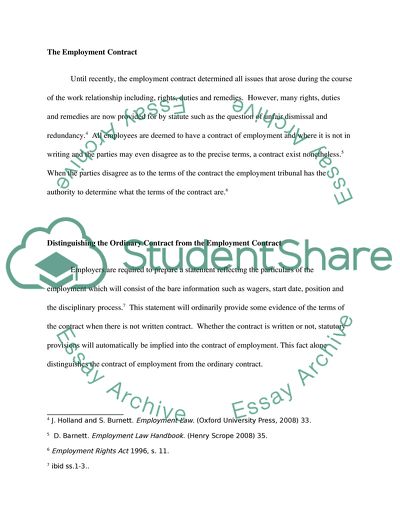Cite this document
(The Employment Contract: Balancing the Employees and the Employers Assignment, n.d.)
The Employment Contract: Balancing the Employees and the Employers Assignment. Retrieved from https://studentshare.org/law/1731674-the-employment-contract-balancing-the-employees-and-the-employers-interest
The Employment Contract: Balancing the Employees and the Employers Assignment. Retrieved from https://studentshare.org/law/1731674-the-employment-contract-balancing-the-employees-and-the-employers-interest
(The Employment Contract: Balancing the Employees and the Employers Assignment)
The Employment Contract: Balancing the Employees and the Employers Assignment. https://studentshare.org/law/1731674-the-employment-contract-balancing-the-employees-and-the-employers-interest.
The Employment Contract: Balancing the Employees and the Employers Assignment. https://studentshare.org/law/1731674-the-employment-contract-balancing-the-employees-and-the-employers-interest.
“The Employment Contract: Balancing the Employees and the Employers Assignment”, n.d. https://studentshare.org/law/1731674-the-employment-contract-balancing-the-employees-and-the-employers-interest.


